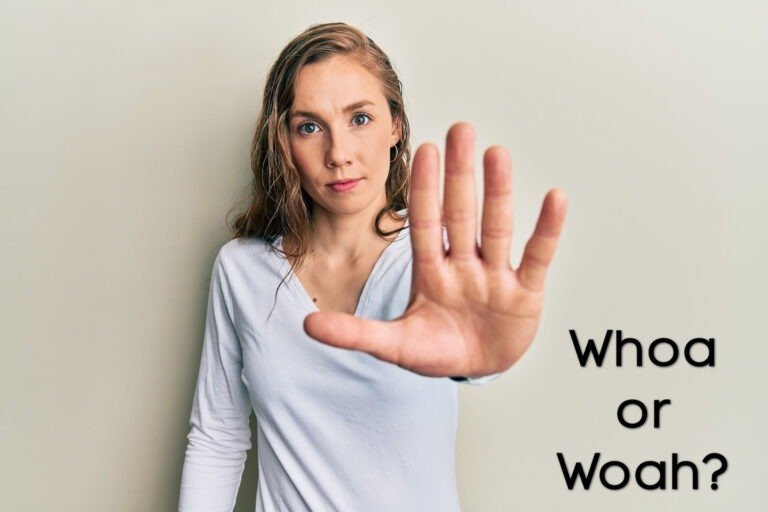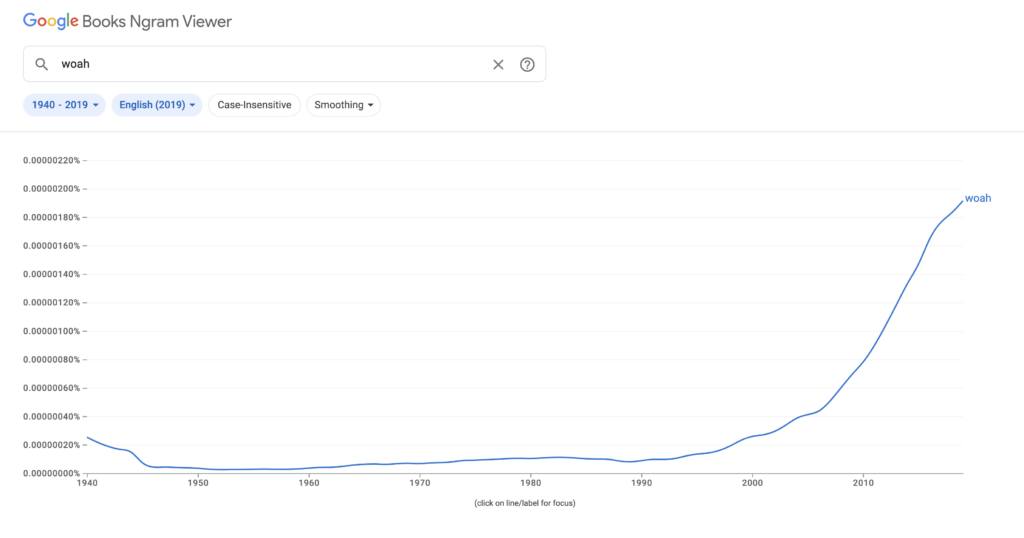“Whoa” can mean “stop,” like in this Keanu Reeves clip from “Sweet November,” or it can mean “wow,” like he often said in “Bill and Ted’s Excellent Adventure.”
It’s supposed to be spelled W-H-O-A, but I keep seeing it spelled W-O-A-H and hearing complaints from other people who see it spelled that way.
The Origin of ‘Whoa’
Here’s a way to remember the proper spelling: “Who” and “ho” are two origins that are often cited for “whoa.” For example, Dictionary.com states that “ho” came first as a Middle English command to make a horse stop and then evolved sometime around 1620 into “whoa.” To remember how to spell “whoa,” remember that the original word—“ho,” something you’d say to a horse—stays intact in the middle of the word.
‘Whoa’ in Shakespeare
Also, in 1616 in the play “The Winter’s Tale,” William Shakespeare had a character known only as Shepherd call out “Whoa-ho-hoa!” Say it in your mind: “whoa-ho-hoa.” Say it loudly like Santa Claus: “whoa-ho-hoa!” The extra “ho”s after the “whoa” should also help you remember to keep the H-O, “ho,” in the middle.
The ‘Woah’ Spelling
And what about the other spelling that most editors would tell you is wrong?
I’ve seen multiple people argue that the two spellings mean different things. That what we consider the correct spelling is how you tell a horse to stop, and what we consider the wrong spelling is how you express wonderment, like “Wooooaaaahhh.” And some people are definitely making a distinction that way, but it’s not the accepted way to write it yet.
I’ve also seen multiple people comment that W-O-A-H looks like it should be pronounced “whoa-ah” since it looks like it should rhyme with “Noah,” and wow, did that ruin any chance of it having a different meaning for me! Now that I’ve seen it that way, I can’t unsee it.
In a “Words We’re Watching” blog post, the Merriam-Webster editors actually say they’re watching W-O-A-H as an alternate spelling of “whoa,” but not as a word with a different meaning. They track how words are used in published text, and they’ve seen an increase in the W-O-A-H spelling since around 1990 (and a Google Ngram search shows the same thing), but it still looks like those are mostly errors that slipped through editing rather than people deliberately writing it a different way. For what it’s worth, the earliest entry in the Urban Dictionary for the W-O-A-H spelling doesn’t show up until 2003.
‘Whoa’ in British English versus American English
And a final interesting note is that the W-O-A-H spelling appears to be much more acceptable in British English than in American English. The Collins Dictionary, which is published in the UK, has a note that the W-O-A-H spelling is a variant “in British English.”
And Lynne Murphy, an American linguist who’s been teaching and living in England for many years, told a wonderful story on her blog, Separated by a Common Language, about her husband using the W-O-A-H spelling and her thinking he was wrong, but then also seeing it in “The Guardian” and on an airport sign, and then doing some database searches to find that, indeed, W-O-A-H is much more common in Britain than in the U.S.
If you’re an American, stick to the W-H-O-A spelling.
The Quick and Dirty Tip is if you’re an American, stick to the W-H-O-A spelling, at least if you care whether people think you’ve made a mistake. You can remember that spelling by thinking of the “ho, ho, ho” in the middle, and that it shouldn’t look like it rhymes with “Noah.” And if you’re using British English, you get to be a little more lax this time because it looks like both spelling are acceptable, but if you want to be extra precise, I’d still stick with the American spelling since the other one still seems to be considered a variant.





